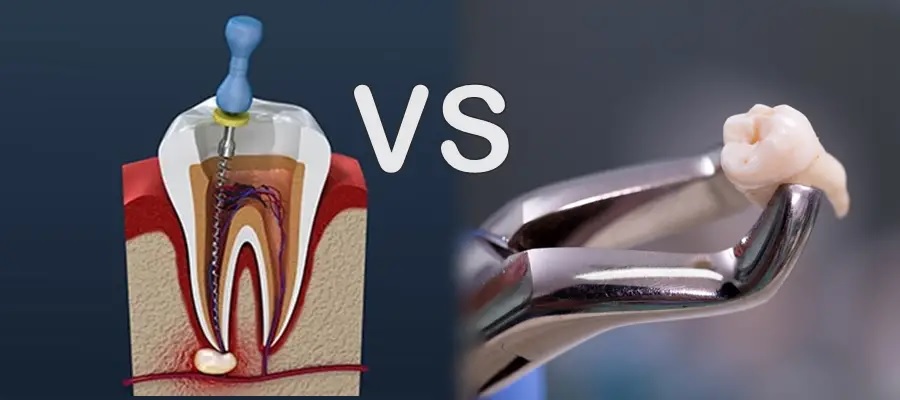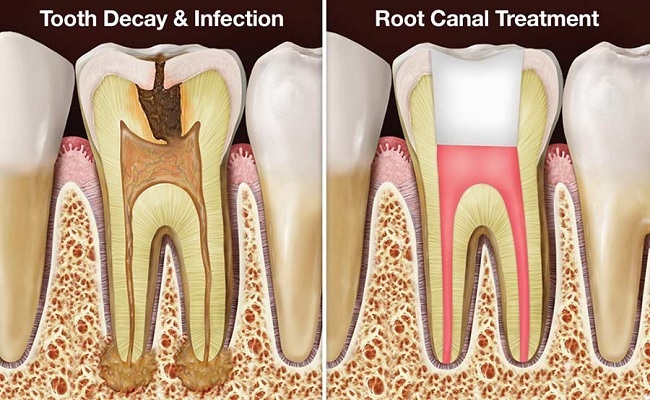When there is a severely affected tooth, the question arises: endodontics or extraction? The decision is difficult if adequate information about the PRO and CONS of each of these alternatives is not provided. In this article we provide you with detailed information to help you in this delicate choice.
How to make the decision?
To decide the process to undergo must analyze various details and factors that will influence the corresponding prognosis of the treatment to choose.
Tooth extractions
Several years ago, we decided to extract the teeth when they caused problems, or when they were damaged. However, thanks to innovations in dental matters, endodontics has been developed as an alternative to maintain natural teeth for as long as possible, explains best dentist in Pitampura.
3 reasons to extract teeth
- Great dental destruction with pulp compromise: When a tooth has lost much of its structure, the chances of recovery are low.
- Dental mobility due to loss of bone support. Periodontitis is characterized by severe reabsorption or decreased support bone; Therefore, the only alternative is extraction.
- Dental infection and lack of budget for another treatment: An endodontic treatment that fails and especially persistent infection could complicate health.
Endodontics
Endodontics also called Root Canal is a treatment in which the dental pulp is removed. The pulp cavity is empty and filled with aseptic and compatible material in order to avoid infection or re-infection.
During the following weeks the endodontist should follow up and control the intervention, in order to verify if it has been successful.
3 Reasons for root canal treatment in Pitampura
- Deep caries and acute pain : The problem with poorly sealed or cured teeth is that it is NOT possible to remove all decay and they progress silently and fatally.
- Traumas or violent blows. They are usually associated with fracture of part of the crown and the color change of the affected tooth. The specialist's assessment is vital to determine if the entire treatment will be worthwhile.
- Presence of fistulas or active infection. It is important at this point to evaluate the degree of dental commitment.
So: Endodontics or extraction?
To make the right decision, keep in mind three considerations:
1️. Diagnosis:
It all depends on a correct diagnosis to determine the severity of the problem. If the tooth has severe trauma that involves more than half of the dental structure, extraction is preferable.
If there is already a previous endodontics and the infection persists, the chances of recovering the dental organ is minimal.
The successful professional evaluation will give us a favorable, reserved or unfavorable prognosis of the case.
2️. Budget
An extraction will simply entail a single expense, while endodontics in many cases requires an additional prosthesis, including a dental bolt to reinforce the dental structure; Consequently the budget is considerable.
Many people leave this process halfway and the tooth ends up becoming contaminated, which causes its inevitable extraction.
Feel free to inform your dentist in Pitampura about the total cost of dental rehabilitation and be honest with yourself if you can afford that budget. If the prognosis is encouraging, make an effort to keep a healthy tooth.
3️. Other alternatives
If you opt for extraction or endodontics fails you can opt for dental implant in Pitampura. This option is excellent when especially in the posterior sector and when implant placement is done as soon as possible to tooth loss.

